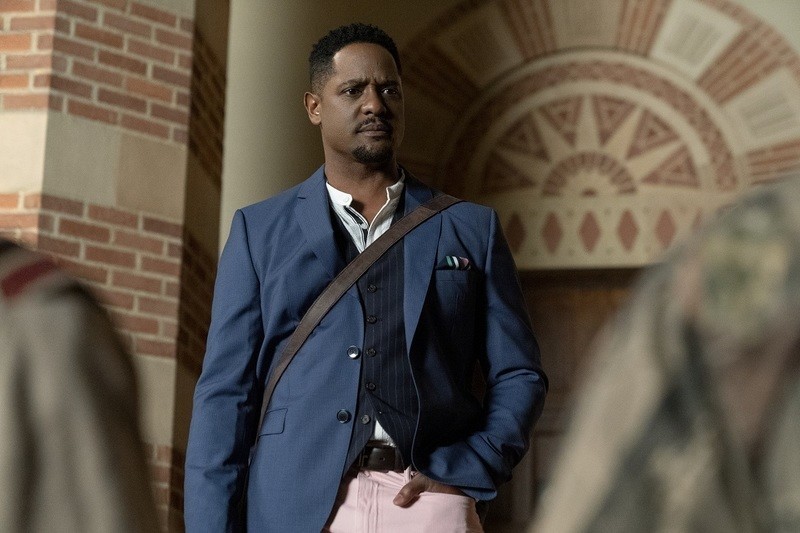
If there’s one show that I could convince people to watch that I feel like doesn’t get enough attention, it’s Netflix’s “Dear White People.” This series about life on a fictional college campus in the era of social media and hashtag campaigns is one of the smartest on television, and starts its third season today, August 2nd. Adapted by Justin Simien from his own film of the same name, “Dear White People” is razor-sharp in ways that other television simply is not, and it takes risks that other shows don’t get anywhere near. With an ensemble that has gotten better every year, Simien and his creative team have created something that doesn’t feel like anything else on television. That the third season is a slight dip down for me narratively compared the first two doesn’t really matter: it’s still great television.
One thing that elevates and separates “Dear White People” is that it is legitimately an ensemble show, especially this season, which feels like it pulls even more of the story away from ostensible leading lady Logan Browning, who plays wannabe filmmaker Sam White. Instead of making the show just about her journey, especially after the death of her father, Simien and company bounce around more than ever, giving each character in a rather large group time to shine. In the past, they would often dedicate single episodes to single characters, but they take a more scattershot approach narratively this season, which allows a tragically underrated cast of young actors a chance to shine but does feel like it sometimes turns the show into a more traditional sitcom than its brilliant first two years. However, as the season progressed, I started to see the scattered narrative as a mirror to Sam’s film project within the show, one that she struggles to bring together but becomes its own special snapshot of campus life in its own way.

The familiar faces of Winchester are back, including Marque Richardson’s Reggie Green, still dealing with trauma from the end of season one. A visiting speaker named Moses Brown (Blair Underwood) encourages Reggie to assist with a self-help app he’s working on, something that will blind him to Brown’s failures as a human being later in the season. Characters like Kelsey (Nia Jervier), Joelle (the incredibly underrated Ashley Blaine Featherson), and Gabe (John Patrick Amedori) continue to struggle to balance work, school, love, and identity.
So what’s the third season of “Dear White People” about? All kinds of things, and a scattershot approach that includes the return of the secret society revealed at the end of season two, a potential T.A. strike, and even a character inspired by Tyler Perry, among many other plot threads, will frustrate some viewers in terms of storytelling. I keep coming back to a line spoken by Sam in the final episode of the season: “Tell your story or they will.” A lot of the threads may not connect this season, but a lot are about who gets to define you; who gets to tell you who you are; who tells your story.

If you’re as uncertain as I am that all the dots connect this season, take a step back and consider all of the things this show does well outside of plot. It’s a show that has become so confident in terms of voice and character, that I don’t mind that the story feels like it treads water this year because I’m down with just spending time with these people. What fascinates me is how deftly Simien embeds messages in his show but somehow grounds the characters at the same time. Lesser shows would have turned these students into mouthpieces long before now. They are people, first, and the message comes through their believability.
It’s also a gorgeous show. We don’t talk enough about elements of form in television reviews but “Dear White People” has wonderfully fluid cinematography, and is edited as well as anything on TV. Sure, the junior year of “DWP” hasn’t quite found its voice, but that aspect of this year almost makes it the show’s most ambitious. As the students struggle to find themselves, so does the show about them. There’s no struggle in my mind when it comes to naming the most underrated show on TV.
Brian Tallerico is the Managing Editor of RogerEbert.com, and also covers television, film, Blu-ray, and video games. He is also a writer for Vulture, The Playlist, The New York Times, and GQ, and the President of the Chicago Film Critics Association.





